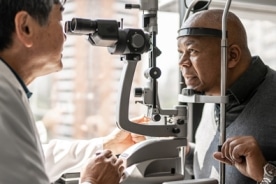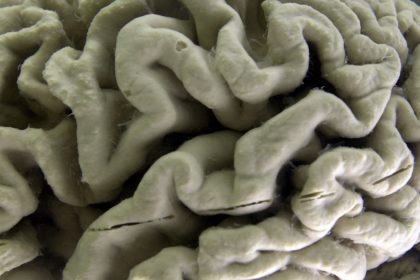Improved Eye Care Could Have Prevented Dementia Cases, Study Says

WASHINGTON — A study recently published in the journal JAMA Neurology suggests that as many as 100,000 U.S. dementia cases could possibly have been prevented with improved eye care.
The National Institute on Aging-funded research used data from a University of Michigan Health Retirement Study that tracked changes in the health and economic circumstances for more than 20,000 older adult volunteers.
The Lancet Commission on Dementia Prevention, Intervention, and Care had previously expanded its list of other modifiable risk factors for dementia.
These include factors such as hearing loss, high blood pressure, obesity, smoking, lack of exercise, diabetes, brain injury, excessive alcohol consumption and exposure to air pollution.
The scientists at the University of Michigan found that one of the top preventive actions that may reduce risk for Alzheimer’s and related dementias is getting vision problems corrected, through methods such as eye exams, eyeglasses and cataract surgery.
Investigators noted that about 1.8% of U.S. dementia cases were associated with visual impairment, and projected that by 2050, that total would rise to around 250,000 cases.
The investigators also showed that incidence of vision impairment in older adults was higher for Hispanics, at 11%, compared to 8.3% on average overall for Blacks and non-Hispanic Whites.
In an accompanying editorial, the scientists noted that these types of correctable vision impairment cases are concerning because, comparable to hearing loss, there is growing evidence that vision problems add additional cognitive load to the brain and are linked to shifts in brain function and structure similar to those seen in dementia.
These destructive impacts are believed to be compounded by loss of stimuli that can result when older adults with untreated sensory impairments reduce their participation in their previous daily routines and social activities.
The researchers found that existing vision correction technologies and treatments, including eyeglasses and cataract surgery, are underutilized in the U.S. and globally, especially among disadvantaged communities.
They concluded that additional studies are needed to test if addressing correctable vision problems can be an effective intervention to protect cognitive health.
























